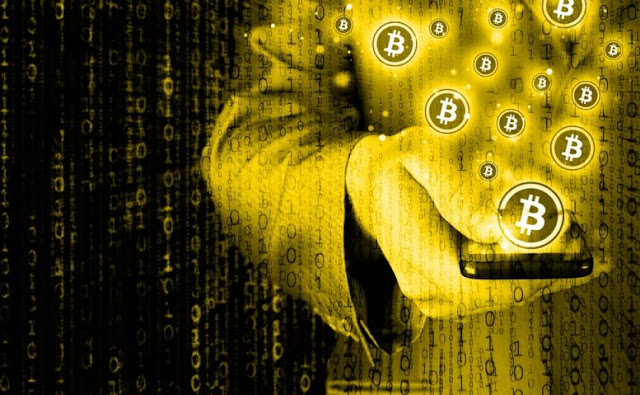WHAT IS BITCOIN?

This definition will get the job done with the end goal of this article. In this article, we will accept that Bitcoin can in fact be considered as a type of cash, as we will probably decide if, as a money, it can satisfy certain particular points or capacities.
Bitcoin varies in numerous regards from "official monetary standards, for example, the Euro or the Dollar. Coins and notes are generally transmitted by the Central Bank of each financial zone (the European Central Bank for the Eurozone, the US Federal Reserve for the Dollar), while store cash, which establishes most by far of cash supply today, is comprised of assets held popular store accounts in business banks (McLeay, Radia, and Thomas, 2014).
Conversely, Bitcoin is a decentralized digital currency that lays on a disseminated archive, secured and oversaw using cryptographic conventions. It is in this way autonomous from any focal expert.
To begin with, Bitcoin Rush Review isn't sponsored by a State or a Central Bank. In spite of the Euro or the Dollar, where a Central Bank is accountable for guaranteeing value soundness and money related steadiness through satisfactory fiscal strategy (Goodhart, 2011; Goodhart et al., 2014), there is no such focal expert in the Bitcoin framework. There is no loan specialist after all other options have run out either, that is, a State or a Central Bank that could salvage banks in case of a budgetary frenzy (Goodhart, 1991; Blinder, 2010).
Second, Bitcoin's installment framework is completely decentralized and lays on an open-source cryptographic convention. This convention starts from an article distributed in 2008 by a certain Satoshi Nakamoto (2008), whose character stays strange (Davis, 2011). The focal development of Bitcoin, which assembles past advances in cryptography, for example, the verification of work innovation (Narayanan and Clark, 2017), is that it depends on a decentralized open record (Ali et al., 2014a).
In a customary installment framework, banks hold a record of exchanges and guarantee that no unit of cash is utilized more than once by a similar client ("twofold spending" issue). With Bitcoin, this control framework is decentralized through an open record framework worked on a distributed system. This record has a few significant properties. To begin with, each client can check and process exchanges. In addition, the Bitcoin convention verifies the record against misrepresentations, without depending on any financial establishment or any focal specialist.
At long last, a significant result of the open accessibility of this record is that Bitcoin can just save a "pseudo-secrecy" for its clients: subtleties of all exchanges are signed on the open record, where the main sign of the personality of their gatherings is their Bitcoin address (Luu and Imwinkelried, 2015).
A third essential distinction among Bitcoin and customary monetary standards lies in its creation procedure. Each client can take part in the making of new Bitcoins, by settling an intentionally convoluted arrangement of calculations (however by and by this "mining" process is essentially taken up by expert excavators). The first Bitcoins were made sans preparation and utilized by the first Bitcoin clients. The primary client of the convention, thought to be Nakamoto himself, mined the initial 50 Bitcoins in 2009 (Wallace, 2011).
The accompanying Rush Bitcoin are made when new exchanges happen, as a reward heading off to the individuals who effectively add another square to the record. All the more decisively, diggers, by explaining astounds, attempt to confirm every exchange and to get the privilege to add it to another "square" containing a few exchanges, added in the Bitcoin record (likewise called the "Blockchain", therefore). This new square is acknowledged inside the record in the event that it contains a substantial exchange and another riddle arrangement.
Excavators are on the whole contending to check every exchange so as to get the reward appended to the fruition of a square. Alongside this reward, excavators may likewise set a charge for handling exchanges, as an integral income. While toward the begin these expenses were peripheral, they have would in general ascent steeply as of late because of system clog, which prompted a noteworthy emergency about improving the convention (see segment 3.1). Inevitably, every time a square is confirmed, new Bitcoins are stamped. 4
In any case, this Bitcoin creation process has an algorithmic point of confinement. The Bitcoin convention has a barely diminishing rate of Bitcoin creation per square, which approximates the rate at which gold is mined. Subsequently, the absolute supply of Bitcoins will asymptotically approach the measure of 21 million (Houy, 2014), which, as indicated by certain estimations, will be stretched around the year 2140 (Ali et al., 2014a).
The reward of excavators is thusly set to diminish, being partitioned by two each 210,000 squares, while the trouble of mining is customized to increment alongside the system estimate. These days, in excess of 17 million Bitcoins have been mined (as indicated by blockchain.info, counseled 19/07/2018). Around 200,000 exchanges happen each day, for an expected estimation of under 1 million BTC.
2. THE CASE FOR BITCOIN ADOPTION
Bitcoin's advocates don't frame a homogeneous gathering, and numerous individuals may bolster Bitcoin selection for various reasons. Notwithstanding, the principle repeating cases for Bitcoin selection might be condensed as pursues:
- Bitcoin can comprise a more steady cash than ordinary state-supported cash, by removing money related approach from the administration's hands
- Bitcoin can give a progressively secure and effective installment framework contrasted with a framework depending on confided in outsiders
- Bitcoin can forgo the need of coercive establishments, for example, States and Central Banks, by accomplishing a decentralized verifying of exchanges through cryptographic verification
- Bitcoin secures clients' protection against maltreatment of state control through government reconnaissance
To start with, Bitcoin is regularly hailed as a way to accomplish an increasingly steady financial framework (Ametrano, 2016; Collard, 2017; Lakomski-Laguerre and Desmedt, 2015; Rochard, 2013). As Nakamoto (2009) worries, with traditional monetary standards, "the national bank must be trusted not to corrupt the money, however the historical backdrop of fiat monetary forms is brimming with ruptures of that trust".
As others have noted (ECB, 2012, p. 23), this analysis reminds the neoliberal scrutinize that state restraining infrastructure in the issuance of cash will fundamentally prompt over-swelling, bringing about discouragements and joblessness (Hayek, 1990 [1976]; Friedman, 1959, 1969). Hayek contended that administrations tend to manhandle their restraining infrastructure influence by deliberately making a lot of cash (Hayek, 1990 [1976], pp. 28–32). Thus, Friedman and Schwartz (1963) contend that verifiably, mediations of the Federal Reserve of the United States have been for the most part negative to financial strength and have frequently compounded emergencies as opposed to unraveled them.
Regardless of whether this record has been challenged (Kindleberger, 1973, 1978), Friedman contends on this premise financial arrangement should "keep away from sharp swings" (Friedman, 1968, 15) and proposed to "solidify" the fiscal base by setting a fixed rate of development in the measure of cash (around 3–5% as indicated by Friedman (1959, p. 91, 1968, p. 16)). His contention depends on authentic proof, yet in addition all alone hypothesis, which, comparably to Hayek's ([1976] 1990), predicts that over the top cash creation is inflationary and can't affect work over the long haul (Friedman, 1968).
The Bitcoin Rush Casino convention is structured in this soul and has been adulated for its "impeccable money related arrangement" (Rochard, 2013): since no focal offices can control the Bitcoin's supply, whose rate of development is set algorithmically, it is safe from swelling.
All things considered, except if a dominant part of hubs chooses aggregately to change the convention itself, there is no system for adjusting the rate of Bitcoin creation. It isn't our motivation in this article to talk about the financial benefits of such a fixed or "algorithmic" fiscal arrangement, an issue which is the subject of a broad writing (see Bordo, 2008, for a survey of the ongoing discussions). In any case, as we will find in segment 3, to truly satisfy that guarantee, Bitcoin must almost certainly forgo any focal administration through and through and it is dubious that it could, while holding different characteristics that would make it an appealing cash.
With bitcoins, there's fundamentally zero dangers of expansion.
Swelling as a rule happens when the Government issues more cash throughout the year, diminishing the acquiring intensity of the general population, overall.
In any case, the bitcoin framework was made with the sole motivation behind being limited (and that number is guessed to associate with 21 million). Accordingly, without the conceivable outcomes of issuing abundance cash, the danger of swelling boils down to just about zero. This point benefits both the dealer and the purchaser, when all is said in done.
Decreased Transaction Fees
Exchange charges for bitcoin installments are essentially lower in contrast with the ones made for credit and platinum card buys.
This component alone should make it a most loved go-to goal for independent company adventures.
Get More Info Click Here - https://www.cryptobitcoinsguide.com/bitcoin-rush/




Comments
Post a Comment